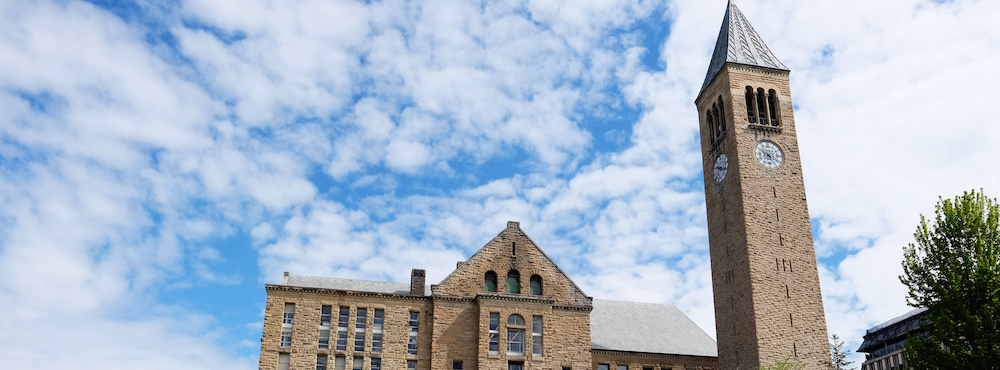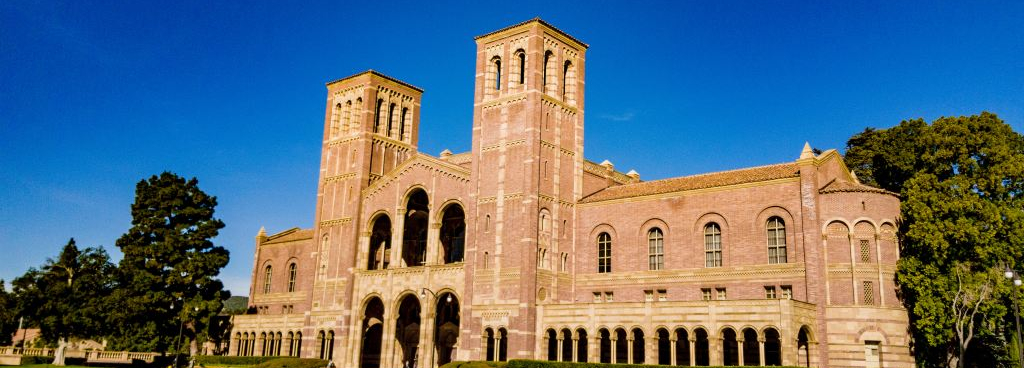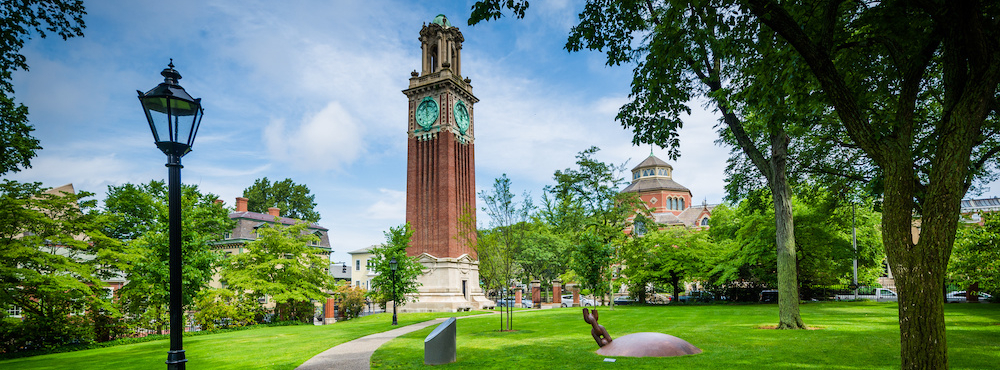Cornell University is an Ivy League school in Ithaca, New York. Renowned for its cutting-edge research, Cornell is ranked 17th among U.S. universities by U.S. News and World Report. Founded in 1865 by Ezra Cornell and Andrew Dickson White, the university opened in 1868. Students who attend Cornell are known as Cornellians, and the university’s athletic teams are nicknamed “Big Red” after the football fight song, The Big, Red Team, was composed in 1905 by Cornell graduate Romeyn Berry. Today, Cornell is home to nearly 26,000 undergraduate and graduate students.
What Is So Special About Cornell University?
Cornell is unique among Ivy League schools in that it’s a land-grant university. This means that Cornell University receives state funding, though it’s a private institution. The university has been at the forefront of innovation since the beginning. In 1883, Cornell introduced electricity to campus — one of the first universities to do so — through a water-powered generator. Today, the university is known globally for sustainability and climate change research.
What Areas of Study Is Cornell University Best Known For?
Cornell University offers a wide range of undergraduate and graduate degree programs, but it’s perhaps best known for engineering, biology, agriculture, architecture, and hotel administration. In fact, Cornell is the only elite institution in the nation with a four-year hotel administration program — the Nolan School of Hotel Administration within the College of Business is considered one of the top hospitality schools in the U.S. Cornell has the top engineering school among the Ivy Leagues and one of the best nationally. Additionally, Cornell University is renowned for its research in cancer biology, genomics, and regenerative medicine, which has been critical to developing new treatments for disease.
The undergraduate programs at Cornell are offered across eight colleges and schools:
- College of Agriculture and Life Sciences
- College of Arts and Sciences
- SC Johnson College of Business
- College of Architecture, Art, and Planning
- College of Human Ecology
- College of Engineering
- School of Industrial and Labor Relations
- Jeb E. Brooks School of Public Policy
What Are the Top 3 Majors at Cornell?
When it comes to undergraduate programs, students can choose among 80 majors and more than 120 minors. If you’re wondering how to choose a major at Cornell, it may help to know which are the most popular. According to Cornell University, the most popular majors change from year to year, but these programs are consistently listed among the top three.
Computer Science
Computer science was established at Cornell in 1965 — one of the first programs of its kind. Students can opt to complete the computer science major through either the College of Arts and Sciences or the College of Engineering. The computer science program includes foundational coursework in data structures, algorithms, logic, programming languages, systems, and theory.
Engineering
The College of Engineering is one of the most selective engineering programs in the nation and offers 14 majors in a wide range of engineering disciplines. Undergraduates in their first three semesters pursue a Common Curriculum, which focuses on coursework in math, physics, computing, liberal studies, writing, and engineering concepts. Students identify their engineering major in their second year.
Biological Sciences
Students interested in a biological sciences major can enroll in the program through the College of Agriculture and Life Sciences (CALS) or the College of Arts and Sciences. The requirements of the major are the same for both colleges, though each college has individual requirements that students must fulfill. The biological sciences undergraduate program offers 13 concentrations, allowing students to focus on the biology discipline that’s of the greatest interest to them.
Other Unique Aspects of Cornell University
Extracurriculars
In addition to its excellent academic programs, Cornell University offers over 1,000 student organizations, clubs, and activities. Students can get involved in extracurricular activities such as sororities and fraternities, intramural sports, student leadership opportunities, community service, and on-campus employment.
Greek life at Cornell dates back to the fall of 1868 — shortly after the first students were admitted to the university. Approximately one-third of the undergraduate student body is involved in Greek life, and the campus area is home to 50 recognized fraternities and sororities.
Cornell University has a unique feature — both an extracurricular activity and a tradition — that is frequently covered in the news and documentaries. The Cornell Chimes consist of 21 bells housed in historic McGraw Tower. Qualified students can audition to be chimesmasters, performing three concerts per day as well as special performances.
Traditions
Many of Cornell’s traditions go back to the early days of the university, though they may have evolved since then. Students enjoy these fun traditions each year:
- Big Red Bear: Cornell doesn’t have an official mascot, but a bear has been associated with athletic events since 1915. The original bear was a real brown bear cub, named Touchdown, that belonged to Cornell’s first biology professor and appeared at football games. The modern bear — Big Red Bear — honors the original, but it’s now a student in a bear suit. Big Red Bear is an unofficial mascot, appearing at campus events as well as football and hockey games.
- Dragon Day: A tradition since 1901, Dragon Day takes place the Friday before spring break. First-year architecture students construct a large dragon and parade it to the Engineering Quad and on to the Arts Quad. In the past, the dragon would be burned in a spectacular bonfire, but the state has since outlawed it. Instead, the dragon is slayed symbolically.
- Slope Day: Students celebrate the end of spring classes every year by enjoying a concert and food on Libe Slope.
- First-Years on the Field: First-year students mob the football field during the homecoming game.
- Seniors on the Field: Seniors storm the football field during the last home game of the season.
Campus Life
Undergraduates are required to live on campus for their first two years unless they transfer to Cornell with two years of on-campus residential experience. Housing options include residence halls and program houses — themed residence halls that allow students to form a community based around an interest or identity. On-campus housing is also available for graduate students.
Cornellians have access to five community centers and a student union where they can socialize, study, get a bite to eat, play games, or visit a fitness center. Other campus amenities include healthcare services, career services, student support and advocacy, disability services, and Cornell Outdoor Education. Founded in 1972, Cornell Outdoor Education (COE) provides opportunities for students to make friends, learn outdoor skills, and even earn physical education credits. Students can sign up for multi-day backpacking, rock climbing, and canoeing trips in the Finger Lakes and Adirondacks. COE offers physical education courses in hiking, kayaking, skiing, caving, wilderness first aid, and more, and even has gear available to rent.
Groundbreaking Research and Innovation
Cornell University has always been a national and global leader in research and innovation. As previously mentioned, Cornell was one of the first campuses in the U.S. to use electricity in 1883. The university introduced the world’s first courses in electrical engineering that same year. Cornell is now known for its various green initiatives, using an on-campus hydro-electric plant, solar farms, a lake source cooling system, and a gas-fired heat and power facility to lessen its environmental impact. The research conducted at Cornell results in hundreds of inventions, patents, copyrights, and licenses every year.
At Cornell, research spans multiple disciplines, and the university offers more than 100 interdisciplinary research centers, institutes, programs, and laboratories where students and faculty can collaborate. Research and innovation at Cornell aren’t limited to scientific disciplines — the university also supports artistic innovation and creative expression through various art programs, and supports entrepreneurship by providing resources, mentorship, and funding opportunities for students and researchers who want to bring their inventions to market.
Notable Alumni and Impact
As an elite school, Cornell produces graduates who go on to make an impact in the world. These notable alumni from Cornell University are well-known for their contributions to law, government, arts and letters, science, and entertainment:
- Ruth Bader Ginsburg was a lawyer and jurist who served as a U.S. Supreme Court justice from 1993 until her death in 2020. She graduated from Cornell in 1954 with a bachelor’s in government and was involved in Greek life as a member of Alpha Epsilon Phi.
- Actor, film director, author, and activist Christopher Reeve graduated from Cornell in 1974 with a B.F.A. in music theory and a B.A. in English. The Christopher Reeve ’74 Scholarship at Cornell was established in memory of the actor, who died in 2004.
- Nobel Prize-winning novelist Toni Morrison graduated from Cornell in 1955 with a master’s degree in English and served as an A.D. White Professor at Large at Cornell from 1998-2003, an honorary appointment. A residence hall on campus is named after her.
- Bill Nye the Science Guy, best known for his science education TV show, graduated with a bachelor’s in mechanical engineering in 1977. He was a visiting professor at Cornell in the early 2000s and donated a solar noon clock to the university in 2011.
- Kurt Vonnegut, one of the 20th century’s most celebrated American writers, enrolled at Cornell in 1940 and served as a staff writer and editor for the university’s newspaper until withdrawing to enlist in the Army during World War II. He was a member of the Delta Upsilon fraternity.
- The first female U.S. attorney general, Janet Reno, graduated from Cornell in 1960 with a bachelor’s in chemistry. During her time at Cornell, she led the Women’s Student Government Association. She served as a visiting professor at Cornell for three years.
Cornell vs. UPenn: Which School to Choose?
Cornell University and University of Pennsylvania are both elite Ivy League schools that are comparable in many ways. Located in Philadelphia, Pennsylvania, UPenn is a good choice for students who feel at home in a bustling, urban environment. At Cornell, students enjoy a more rural environment. However, location is not the only consideration when choosing between them — they each excel in different academic programs.
If you already know which academic discipline you want to pursue, you will find it beneficial to research whether Cornell or UPenn has the strongest program in your intended major. You should also consider tuition costs and financial aid eligibility, including scholarship programs.
Cornell vs. Vanderbilt: Which School to Choose?
Dubbed a “Southern Ivy,” Vanderbilt University is one of the top-ranked universities in the U.S. Located near downtown Nashville, Tennessee, Vanderbilt offers a rich college experience enhanced by big city opportunities. Like Cornell, Vanderbilt is renowned for research and innovation. If you are looking for a close-knit campus community, you may prefer Vanderbilt because it has a much smaller student population of approximately 13,700 overall.
It is also worth looking into the strength of the academic program you’re interested in pursuing to see which school offers the better option. The school you choose may also depend on tuition cost, any scholarship programs you may be eligible for, and how much financial aid you may be awarded overall.
What Are Your Chances of Acceptance at Cornell?
As one of the top schools in the U.S., Cornell University’s acceptance rate is consistently under 10%. That’s why it’s important to submit the most compelling, authentic application possible. Seeking college admission help can improve your chances of getting into Cornell and other highly selective schools. At IvyWise, our college admissions counselors have worked on the admissions committees at some of the most highly ranked schools in the U.S. — they know what colleges are looking for and help students submit applications that make them stand out. Schedule an Initial Consultation to learn more.




